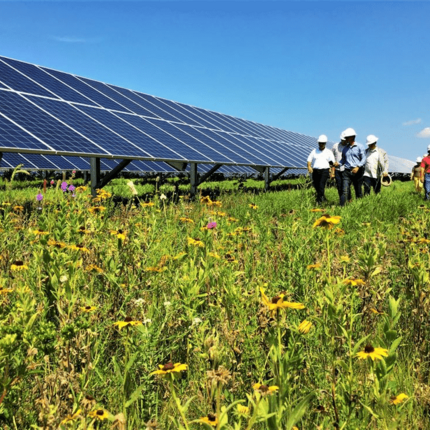By Cody Smith, former staff member
Wiping out the last five years of solar job growth, the COVID-19 pandemic has reset total employment in the U.S. solar industry back to 2014 levels.
As recently as 2019, the solar industry employed 250,000 Americans in all 50 states. According to the Solar Energy Industries Association, the novel coronavirus has decimated growth in the industry, which will now employ 188,000 Americans through June 2020. This new reality is a 38 percent drop from the 302,000 originally forecasted. Meanwhile, during the second quarter of 2020 (April, May, and June), the country lost out on 3 gigawatts of solar energy deployment, the equivalent of powering 288,000 American homes.
For farmers, small businesses, and homeowners across the U.S., solar has become a key cost-cutting strategy while lease and tax payments stimulate local, especially rural, economies. Looking forward, Congress has the ability to make investments in the solar industry to chart a more resilient and renewable path forward for the country. Supportive public policies, including the federal Investment Tax Credit, have continued to spur investment in solar energy and helped facilitate more economic growth.
By supporting the clean energy economy during this period of economic insecurity, Congress can ensure rapid growth of the solar industry, while making sure jobs and revenue that projects bring to rural communities are sustained.
The long-term impacts related to the coronavirus are unknown, but for lawmakers looking to anchor an uncertain economy, investments in the solar industry would put rural America on a path to a more prosperous future.
Feature photo provided by the Center for Pollinators in Energy.





